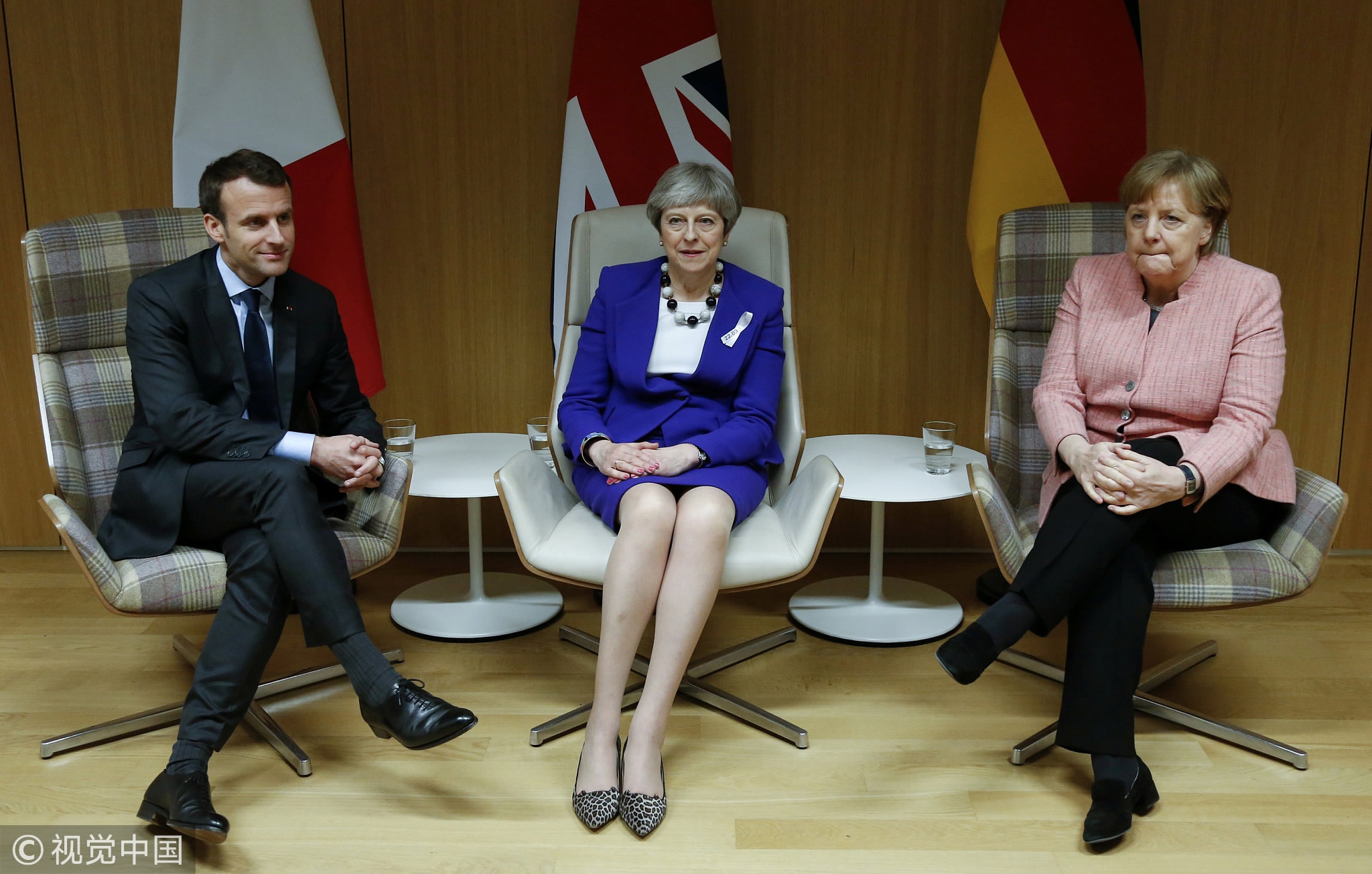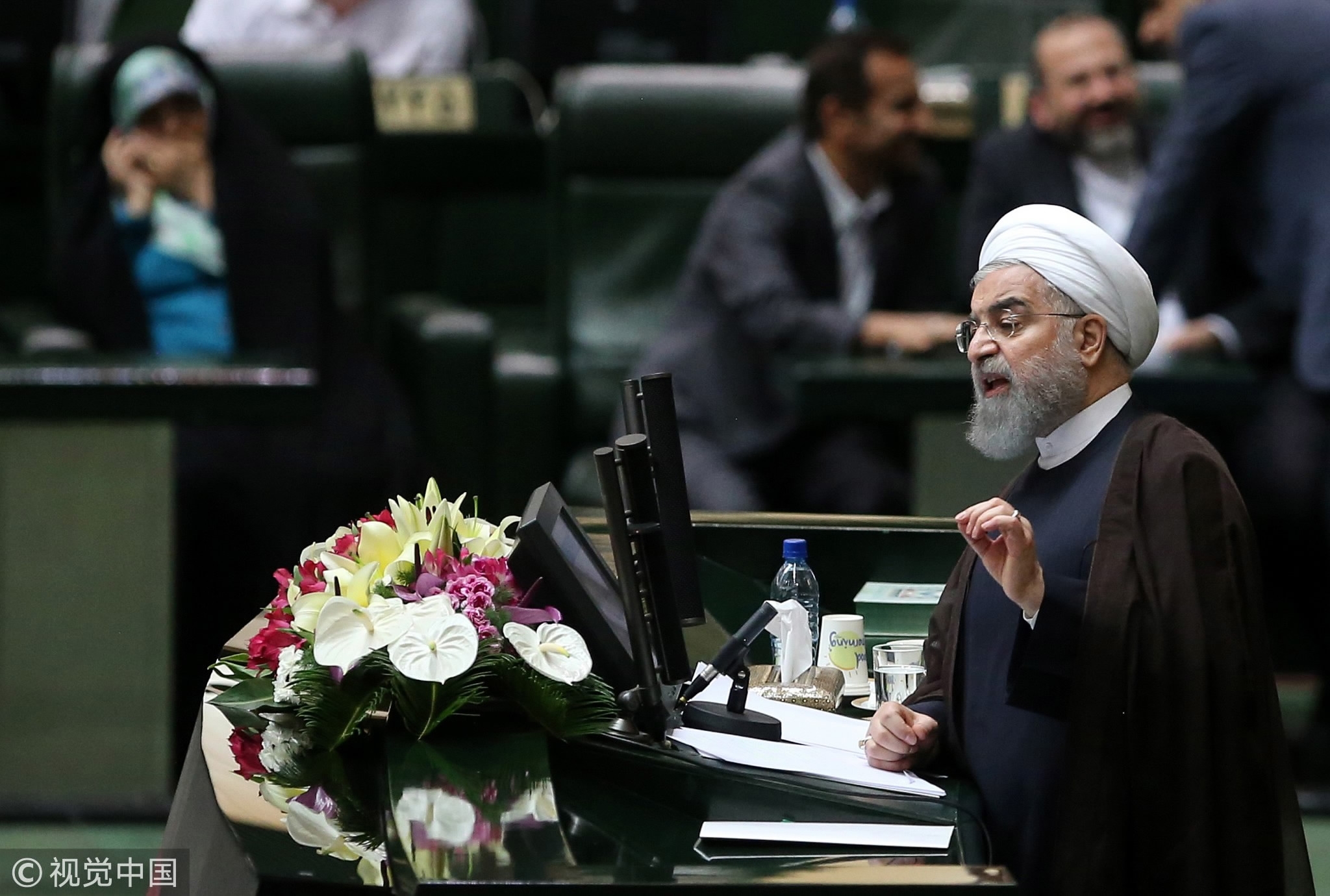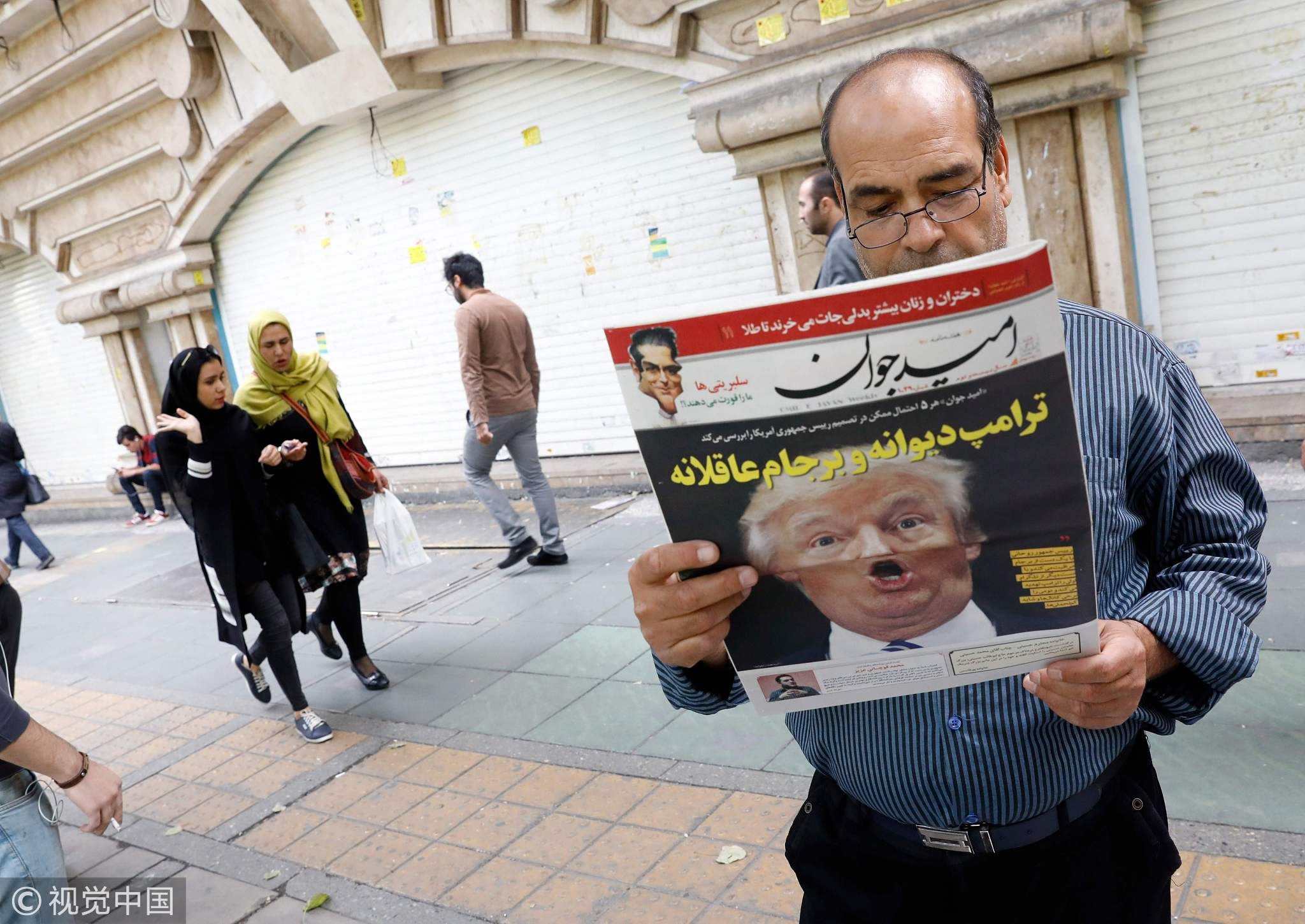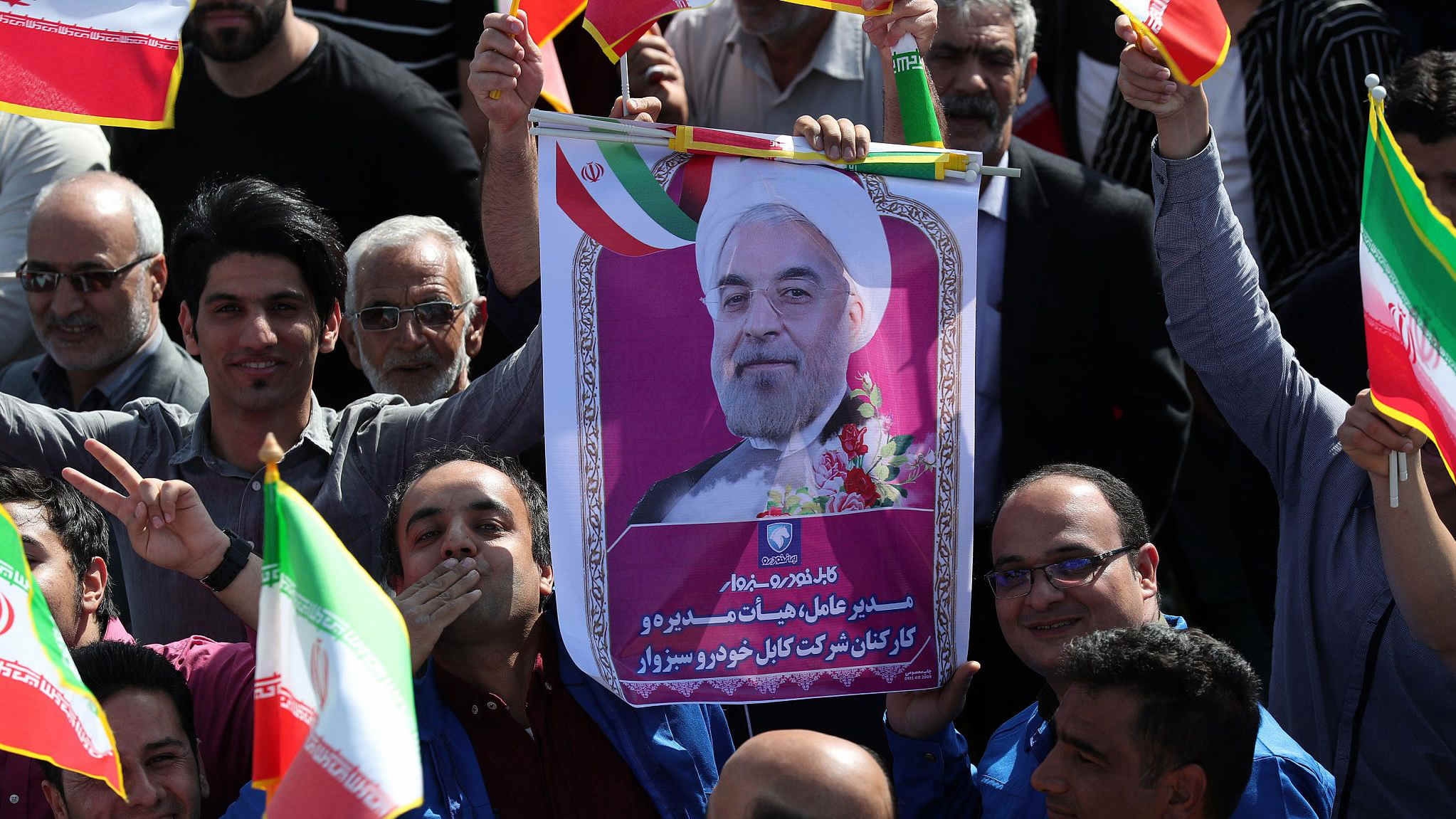In 2015, a deal was struck between Iran, US, Russia, China and three EU members – France, Germany and Britain – to lift economic sanctions on Iran in return for limitations on its nuclear program.
Under the
Iran nuclear deal, Tehran pledged “that under no circumstances will Iran ever seek, develop or acquire any nuclear weapons.” It was welcomed as a historic move by the international community. However, US President Donald Trump is famously opposed to the agreement, claiming that the deal offered Iran relief from major economic sanctions, but failed to control Iran’s military strength.
Initially giving May 12 as the deadline for whether the US would stay or leave the deal, Trump now says he will announce his decision on Tuesday.
With the US potentially leaving, the European signatories are doing their best to salvage the Iran nuclear deal.
Keeping the deal alive
At the end of April, France President Emmanuel Macron and German Chancellor Angela Merkel had back-to-back visits to the US, with one of their major aims being to stop Donald Trump from quitting the Iran nuclear deal. Trump didn’t buy their arguments, but both France and Germany are trying to draft a supplementary deal.

Britain's Prime Minister Theresa May is flanked by French President Emmanuel Macron and German Chancellor Angela Merkel before their trilateral meeting at the European Union leaders summit in Brussels on March 22, 2018./VCG Photo.
Britain's Prime Minister Theresa May is flanked by French President Emmanuel Macron and German Chancellor Angela Merkel before their trilateral meeting at the European Union leaders summit in Brussels on March 22, 2018./VCG Photo.
On April 29, UK Prime Minister Theresa May, Macron, and Merkel had phone calls with each other and voiced official support for the Iran nuclear deal and said they will stay in the deal even if the United States withdraws. Some media even reported that Europeans have started work on their “Plan B,” which is to protect EU-Iranian business ties if the US president insisted on pulling out.
Worry about Iran’s military strength and the potential nuclear race in Middle East
“Europeans and America have different interests in the Middle East,” Ruan Zongze, the executive deputy director of the China Institute of International Studies, told CGTN. “The Middle East are geographically connected to Europe, while the United States is far apart. Iran's threat to Europe is very direct, as Iran now has missiles that can reach Europe.”

US President Donald Trump makes a statement on the administration's strategy for dealing with Iran, in the Diplomatic Reception Room in the White House, on October 13, 2017 in Washington, DC./VCG Photo.
US President Donald Trump makes a statement on the administration's strategy for dealing with Iran, in the Diplomatic Reception Room in the White House, on October 13, 2017 in Washington, DC./VCG Photo.
Besides the worries about Iran’s military strength, Ruan told CGTN that Europeans are anxious about the potential nuclear race in this area. “If Iran insists on nuclear development, it may lead to a nuclear race in neighboring countries, like Saudi Arabia, Turkey, even Egypt,” Ruan added.
Not wanting to deal with more refugees
Faced with the possibility of Trump tearing up the Iran nuclear deal, Iranian president Hassan Rouhani has threatened to its restart nuclear program in “hours.” Just a month ago, Rouhani had another strong response. He warned that Donald Trump “will regret it” if he chooses to withdraw. There could be a war if things go worse.

President of Iran, Hassan Rouhani delivers a speech during a vote of confidence session held for 12th term ministers at the Iranian parliament in Tehran, Iran on August 15, 2017./VCG Photo.
President of Iran, Hassan Rouhani delivers a speech during a vote of confidence session held for 12th term ministers at the Iranian parliament in Tehran, Iran on August 15, 2017./VCG Photo.
For Europe, the prospect of war nearby, also means the prospect of refugees. In 2015, Europeans suffered from a migrant crisis from the war in Syria. Settling the existing refugee community properly has already strained many European countries, with fears of a new flood of refugees fleeing into Europe likely to play a role in how France, Germany and the UK are viewing the Iran issue.
Lifting of sanctions has led to better business
Iran and Europe signed a huge economic and trade contract after the lifting of sanctions. Many companies had announced big investment and cooperation with Iran. For example, Iran signed the biggest-ever car deal with France's Renault in 2017, according to AP news. If Iran nuclear deal is invalid, Europeans will have to bear huge economic losses.

An Iranian man reads a copy of the daily newspaper 'Omid Javan' bearing a picture of US President Donald Trump with a headline that reads in Persian "Crazy Trump and logical JCPOA (Joint Comprehensive Plan of Action)", on October 14, 2017./VCG Photo.
An Iranian man reads a copy of the daily newspaper 'Omid Javan' bearing a picture of US President Donald Trump with a headline that reads in Persian "Crazy Trump and logical JCPOA (Joint Comprehensive Plan of Action)", on October 14, 2017./VCG Photo.
As Iran's neighbor, European countries have deeper worries than the US about Iran’s military strength, the potential nuclear race in the Middle East, the burden of new coming refugees, and the negative impact on their economies. Thus, Europeans will try everything they can to preserve the Iran nuclear deal.
(The article is based on an interview with Ruan Zongze, the executive deputy director of the China Institute of International Studies. The article reflects the expert’s opinion, and not necessarily the views of CGTN.)






